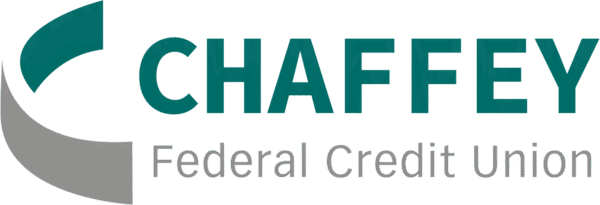
Halloween may be our favorite spooky time of year, but scammers lurk around corners all year round. Through texts, games, or even deceptive college communications, fraudsters reach out to a variety of different channels and target a variety of different ages. Falling victim to one of these fraud attempts can feel like a real nightmare – one that can have a drastic effect on your finances or identity information.
It’s important that you and your family stay educated on how to protect yourselves from these threats, no matter your age. To help you introduce fraud-prevention conversations to your family, we’re sharing some tips from My First Nest Egg on how to teach kids to spot a scam.
- Don’t Take the Candy! If something seems too good to be true—like a free Roblox code or prize—it probably is. Teach kids to pause before they tap.
- Ghostbusters Rule: Tell an Adult. If a message, pop-up, or link feels weird, the safest move is to call in backup. Encourage kids to come to you right away.
- Spot the Costume. Scammers often pretend to be someone you trust. Look closely—does the email look off? Is the message urgent and strange? Help kids learn to recognize red flags.
While knowing the best practices is essential for building strong fraud-prevention skills, knowing what you’re looking for can also go a long way to helping you and your children avoid scams. We’ve gathered popular scams that target kids, teens, and young adults to help you and your family discuss what threats you should be on the lookout for:
Social Media Scams
Social Media platforms are used to connect with family, friends, current events. Many of us are comfortable with sharing details about our personal lives and thoughts on these platforms. However, it’s important to remember that it’s easy for fraudsters to reach out on these sites, too.
While it may initially seem harmless, sharing personal details with people online can lead to bad consequences. Being asked about seemingly unimportant information, such as your parent’s name, where you grew up, or your first pet might seem harmless to some, but these topics are often used as standard security questions to different types of accounts. While trying to build your trust, scammers might work these details into the online conversation in an attempt to learn sensitive information that could lead to your accounts getting hacked. Kids should learn to never share any details, no matter how inconspicuous they might seem, to people they don’t know over social media.
Other popular social media scams start off with fraudsters posting about raffles or contests for free gifts in the comments on other posts, which commonly result in get-rich-quick schemes. Your kids may also see people catfishing as celebrities in an effort to gain trust before asking users to send funds or share sensitive information.
Text-Scams
Text Scams go after people of all ages. They’re so common, it’s very likely that your children or teens with phones have already received them too. These scams are unexpected messages from an unknown number, and often conclude with a fraudster trying to trick you into sending money or sharing personal details. They can occur in a variety of different ways.
You might receive an update about a delivery order you did not place, usually with a link for more information. The link sent in these cases are often phishing links, designed to take the user to fake webpages to steal your personal or account information. If you receive these, be sure to ask yourself, am I expecting a delivery? The safest option is to avoid the link, and login to your account for Amazon, UPS or other delivery service directly to check your orders.
Other popular text scams include the “wrong number” scam: fraudsters will “accidently” send you a message by mistake claiming they sent it to the wrong number, but then will continue messaging you to learn personal, sensitive information. The Federal Trade Commission released the top texts scams of 2024, to help you and your family identify potential threats.
Video Game Scams
Video games are a popular hobby for people of all ages. What you might not know, however, is that scammers are more commonly using gaming platforms to con players. Fraudsters might reach out in variety of ways. They might pose as game companies and send phishing links via email or game chats urging you to act quickly, stating that your account is under suspension or that you need to confirm your login. These scams attempt to steal the personal information that you share through link. Be sure to always check sender information before interacting with these types of messages.
During “in-game” scams, fraudsters will offer free or cheap game currency and will send you a link or survey to claim your prize. In reality, these links will work to steal your personal or financial information. In situations when someone is offering you free or discounted game resources, remember: if it’s too good to be true, it probably is!
Financial Aid & Scholarship Scams
Applying for college admissions or student aid can be an overwhelming time for students. Scammers are aware of this, and target students with offers that are too good to be true. Watch out for companies that promise to get you scholarships if you pay an upfront fee or collect your credit card information. Some will use pressure tactics to get you to pay a fee quickly before the offer is gone.
Remember, the FAFSA form is free to fill out and submit. No one should be asking for your credit card information to submit this form. StudentAid.gov offers important reminders about FAFSA, common scholarship scams, and more to help you get through school without becoming the victim of fraud.
Student Loan Debt Relief Scams
Getting unexpected messages urging you to take advantage of student loan forgiveness programs? Some scammers will pose as representatives from student loan debt relief companies, promising quick loan relief and pressuring you to act quickly. They will often attempt to trick you into sharing sensitive information about you or your loan account for an upfront payment. Be wary of any unrequested offers for student loan relief.
Be sure to work directly with your loan servicer when discussing your loan terms or relief. StudentAid.gov offers resources to help you understand how their legitimate messages are sent. They also offer guidance to help you identify and confirm which private companies they work with to service some of their student loan debt relief programs.



